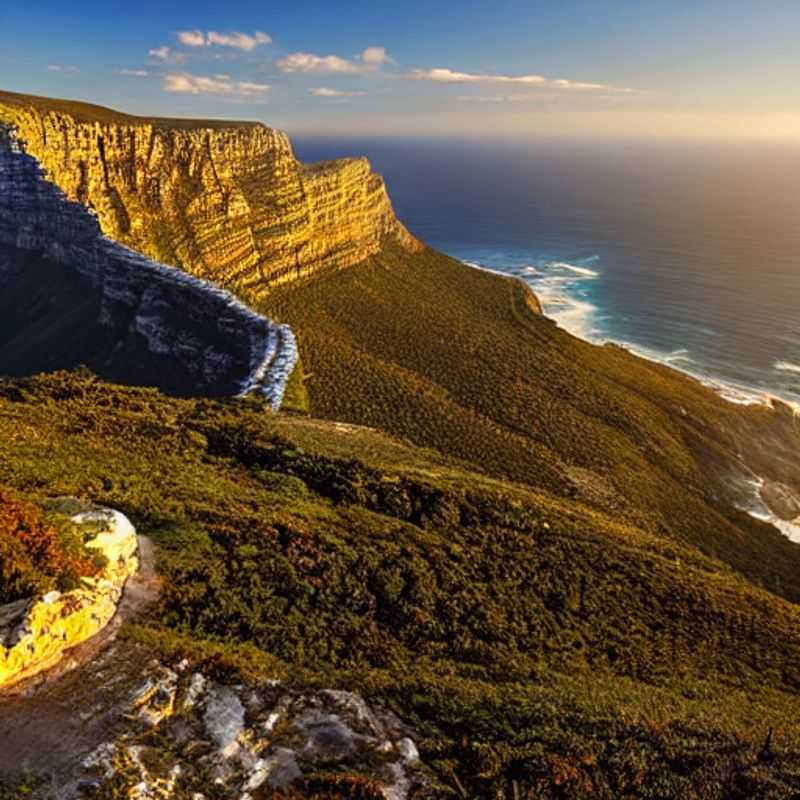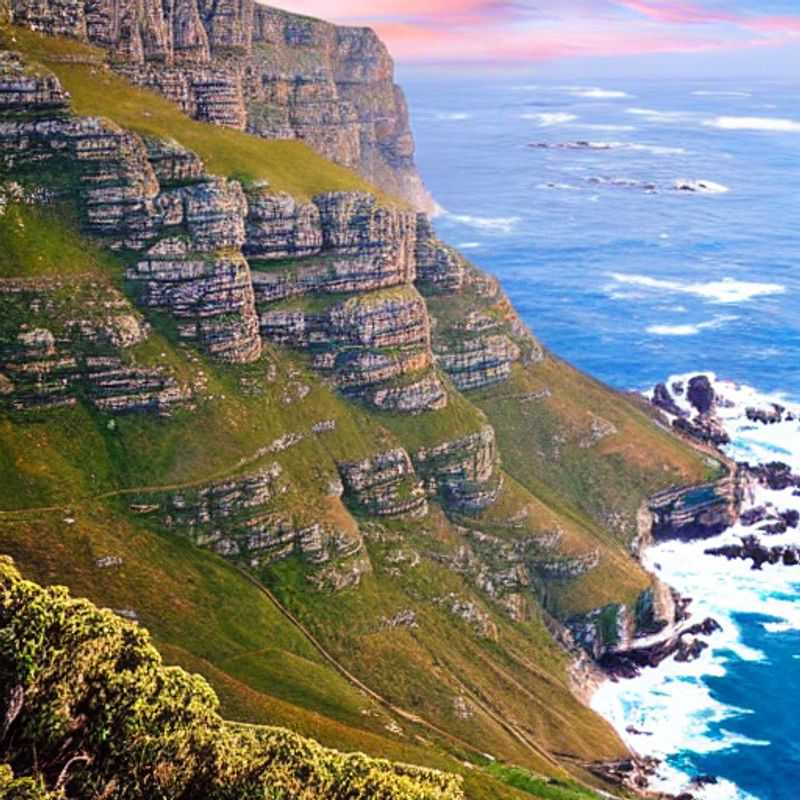Cape Point Safety First: 5 Essential Tips for a Smooth Trip

Cape Point 2026: Essential Safety & Practical Tips for Your Visit
Planning a trip to Cape Point in 2026 requires a focus on safety and practical preparation to ensure a memorable and enjoyable experience. This stunning natural reserve, while breathtaking, demands respect for its wild environment. One of the most crucial aspects of your visit is to always stay on marked trails. Wandering off designated paths can lead to dangerous situations, including getting lost, encountering unpredictable wildlife, or damaging fragile vegetation. Remember, these trails are designed for your safety and to protect the park's delicate ecosystem.
When it comes to wildlife, maintain a safe distance from all animals, including baboons and antelope. Never feed them, as this habit can lead to aggressive behavior and health problems for the animals. Keep all food items securely stored and out of sight. For those planning to hike, wear appropriate footwear that provides good ankle support. The terrain can be uneven, and sturdy shoes will prevent injuries. It's also wise to carry plenty of water, especially during warmer months, as dehydration can set in quickly. The South African sun can be intense, so don't forget sunscreen, a hat, and sunglasses.
Furthermore, check the weather forecast before your visit and be prepared for rapid changes. Conditions at Cape Point can shift dramatically, from sunny skies to strong winds and mist. If you plan to explore the lighthouse, be aware of the steep walk or take the Flying Dutchman funicular. For those with mobility concerns, the funicular is an excellent option. Finally, inform someone of your itinerary if you are venturing into more remote areas, and always have a fully charged mobile phone, though signal coverage can be intermittent. By prioritizing these essential safety measures and practical tips, your 2026 visit to Cape Point will undoubtedly be a highlight.
Cape Point Capers: A Guide to Staying Safe on Your South African Adventure
Jambo, fellow adventurers!

You may also like
Cape Point Capers: Decoding the Government's Travel Whispers (and Staying Safe!)
Chasing the Cape's Legends: Government Advisories & Your Survival Guide
Unlocking the Secrets of Cape Point: A Tourist's Guide to Government Warnings & Wise Travel
Navigating the Cape's Mysteries: Government Safety Tips & My Hilarious Near-Death Experiences
From Myth to Map: Government Travel Advisories & Practical Cape Point Safety
Cape Point's Call: Government Warnings, Ancient Lore, and Staying Alive in Style
Outsmarting the Cape's Perils: A Guide to Government Advisories and Safe Travels
Beyond the Baboons: Government Safety Briefings & Adventures at Cape Point
The Cape's Curious Case: Government Travel Alerts and Avoiding the Tourist Traps
Cape Point Chronicles: A Blend of Government Guidelines, Folklore, and First-Aid Fun
Jambo, fellow adventurers! So, you're a wellness traveler eyeing Cape Point in the South African winter? Excellent choice! But let's be clear: winter in Cape Point means bracing winds and a chilly ocean. Pack layers, my friend, and don't forget your waterproof jacket! Think rugged coastlines, dramatic cliffs, and the legendary Cape of Storms. Expect temperatures ranging from 8°C (46°F) to 16°C (61°F).
Now, about those government travel advisories. Always check the official websites of your home country and South Africa's Department of International Relations and Cooperation before you go. They’ll have up-to-date info on safety, health, and any potential disruptions. Don't rely on hearsay; official sources are your best bet.
As for the cultural scene, Cape Point offers a vibrant mix of cultures. The local Xhosa people have rich traditions, and you might catch a glimpse of their colorful clothing or hear their soulful music drifting on the wind. The cuisine is a delicious blend of flavors – think hearty stews, fresh seafood, and biltong (dried, cured meat). A typical meal at a local restaurant might cost you around R200-R400 ($12-$24 USD).
Exploring the Cape Point Nature Reserve is a must! Entry is approximately R180 ($10USD) per person. You can hike to the lighthouse for breathtaking views, spot whales (in season), and even see baboons – just maintain a safe distance and never feed them. The area boasts unique fynbos vegetation, including proteas (South Africa's national flower). Public transport in the area is quite limited, so hiring a car is quite useful or arranging a taxi is recommendable, adding another R500-R1000 ($30-$60 USD) to your budget, depending on the method chosen and the distance.
Winter brings fewer crowds, which means a more peaceful experience. Expect fewer tourists, so the mood is generally more relaxed. The sounds of the crashing waves and the calls of seabirds create a tranquil atmosphere. Remember to embrace the "slow travel" philosophy and enjoy the solitude.
For accommodation, consider cozy guesthouses or eco-lodges. Prices range wildly depending on your preference and location, and you should expect to pay between R800 ($48 USD) and R3000 ($180 USD) per night. Factor in activities, souvenirs, and unforeseen expenses – a reasonable budget for a 5-day solo trip, excluding flights, could range from R6000 ($360 USD) to R15000 ($900 USD). This is just an estimate, and the exact cost will vary based on your choices.
Remember, safety is paramount. Stick to well-lit areas at night, let someone know your itinerary, and be aware of your surroundings. Enjoy the magic of Cape Point, but always prioritize your well-being. Safe travels!

2026 Cape Point Backpacking: Your Essential Practical Guide
Embarking on a backpacking adventure to Cape Point in 2026 promises breathtaking scenery and unforgettable experiences. This guide offers practical insights to ensure your journey is both enjoyable and well-prepared. Prioritize booking your accommodation and any guided tours well in advance, as popular spots, especially around peak season, fill up quickly. Consider the time of year for your visit; summer (December-February) offers warm, sunny days ideal for hiking, while autumn (March-May) provides milder weather and fewer crowds, making it a potentially better choice for backpackers seeking solitude. When packing, lightweight, quick-drying clothing is essential, along with a sturdy, comfortable backpack. Don't forget a reliable rain jacket, even in summer, as weather in Cape Point can be unpredictable. Invest in good quality hiking boots; you'll be traversing varied terrain, from coastal paths to fynbos trails. For safety, always inform someone of your hiking plans and estimated return time. Carry ample water and snacks, especially on longer treks, as facilities can be scarce. Understanding the local currency and having some cash on hand is also advisable, though card payments are widely accepted in larger establishments. Finally, embrace the wild beauty and be respectful of the environment; leave no trace and cherish the unique biodiversity of this iconic destination.